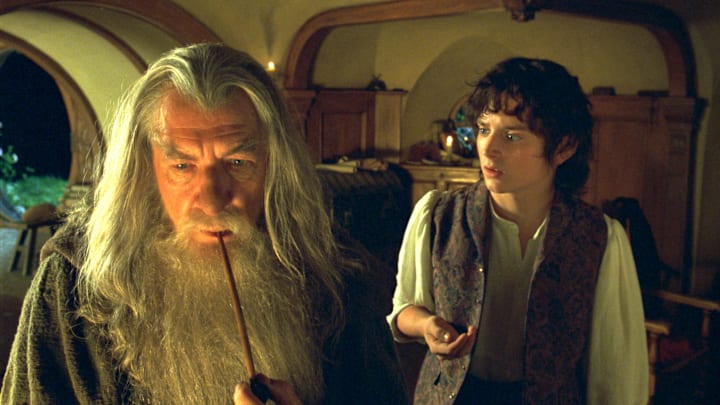Books: Fellowship of the Ring, The Two Towers, The Return of the King, J.R.R. Tolkien, 1954-1955
Movies: Fellowship of the Ring, 2001, The Two Towers, 2002, The Return of the King, 2003
For this exercise, these will be referred to as The Lord of the Rings, as they were titled before published broke the one book into three for publishing (money) purposes.
Written in the 1930's and 40's, The Lord of the Rings is probably the most influential work in the high fantasy genre. Almost all fantasy written since pays homage to this pioneering literary work in way way or another.
It is a work of great imagination and intelligence. When the world Tolkien invented is looked upon as a whole, it is nearly impossible to grasp the entirety of his vision. It is that incredible and that good.
The movies were constructed with love by Peter Jackson, who allowed technology to reach a point where it could handle the source material without it being a cartoon. Jackson filmed all three movies at once, as if one incredible 10-hour film, just as the books were originally one tome.
Like with The Godfather movies, The Lord of the Ring movies did a great job of eliminating the parts of the book that weren't important to the flow of the main story. Very little of the original work was changed other than to re-imagine it to scale for the big screen.
Visually, the movies were masterpieces. Surely, in his wildest imaginings, Tolkien could never have envisioned what that world he created could eventually look like. While the written work is nearly beyond compare for the genre, the movies made the words on the page so realistic, so incredible, it is hard to read the books and not immediately want to see the movies again. The words are brought to life in such an incredible way.
Maybe more so than the other entries here, the movies are companion pieces to the source material. The movies bring to life not everyday things we are used to seeing, but things of the imagination, such as walking, talking trees, elegant elves, and brutal orcs.
The movies bring amazing things once only harbored in imagination to life. The books put those creatures of the mind down into an incredible story, and the movies brought them to life to illustrate that story.
